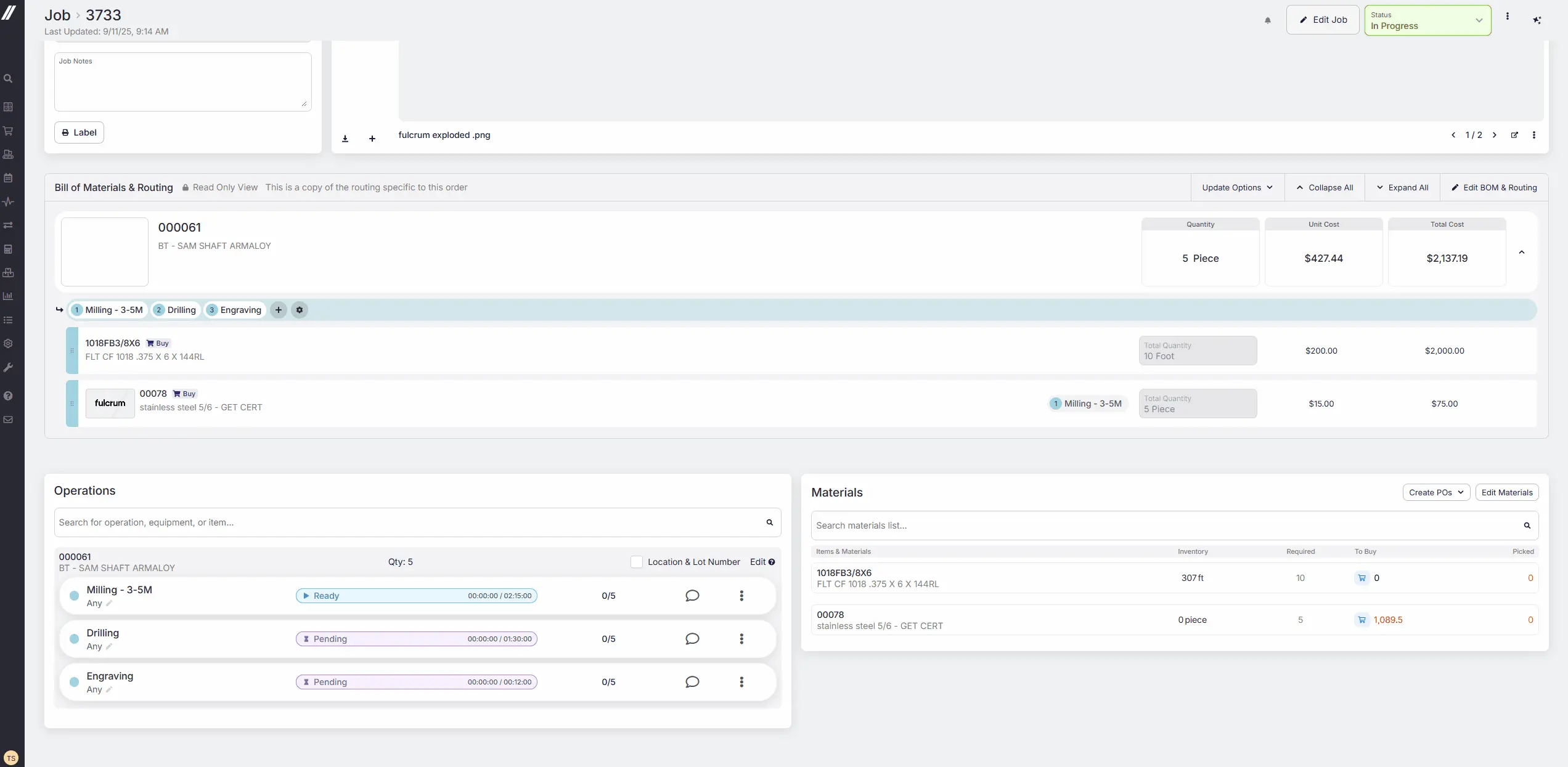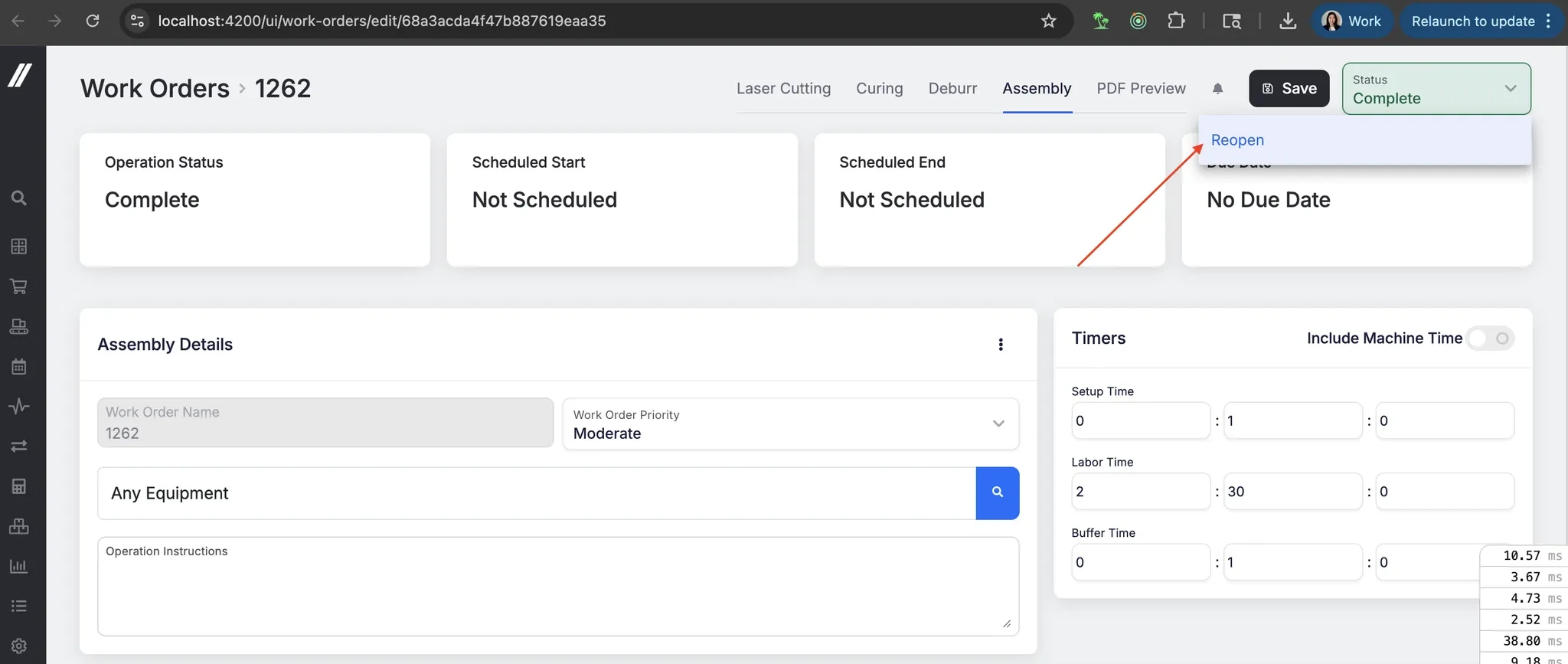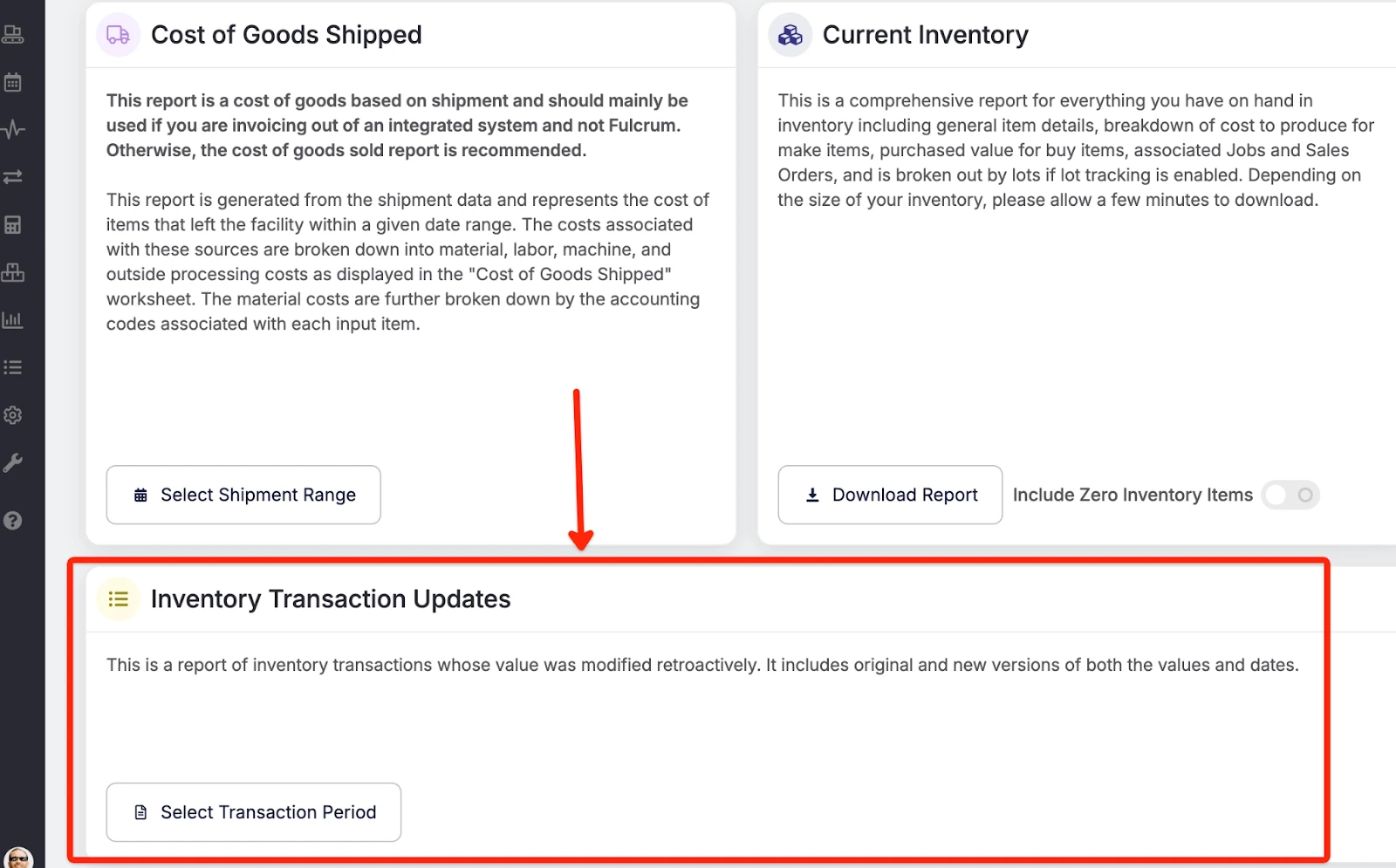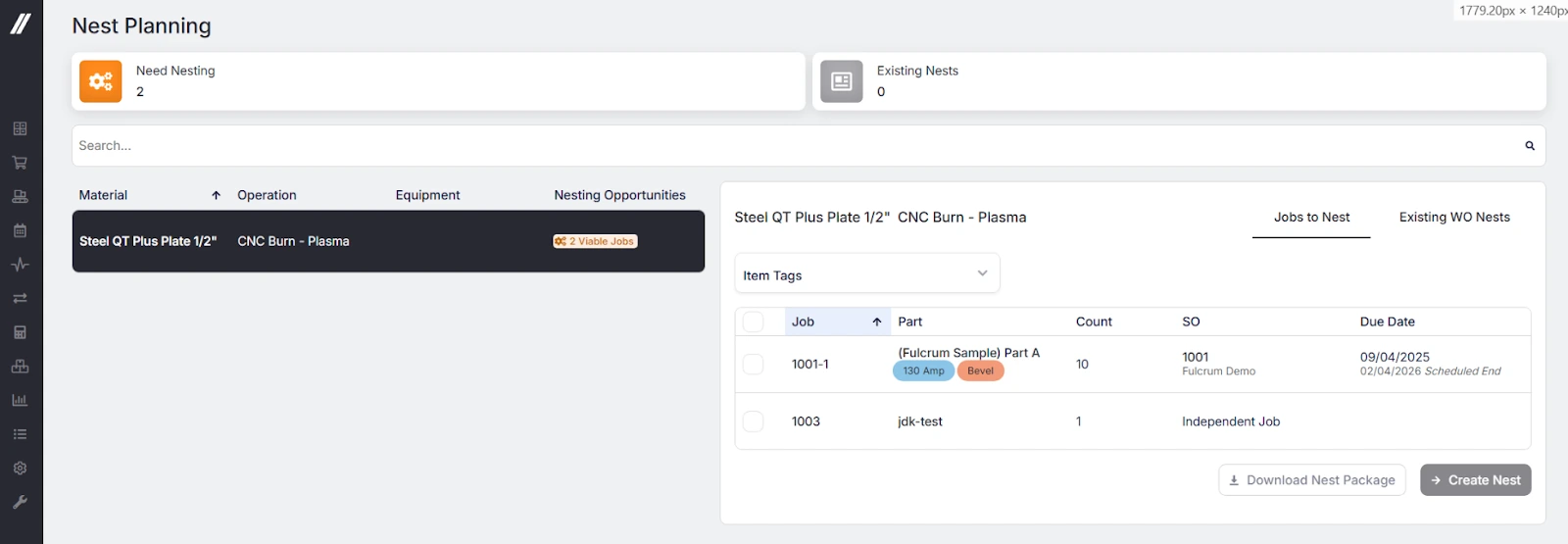The team has a continued objective to build out additional functionality for the materials feature. This week’s updates include two new functions related to additional materials on jobs.
 Share ->
Share ->If you had a default location on an item and added inventory directly on the item’s page, the default location didn’t populate. Now it will!
As part of our ongoing effort to improve the work order workflow, we introduced a beta with the ability to edit operations for in-progress work orders, with the goal of increasing flexibility in managing work orders to account for human error and real-world production changes. We’re removing the beta and releasing this fully to all customers! Here’s a video of the new functionality.
Expected Receive Date was recently added to Outside Processing line items. This field will now be used for the schedule, with a fallback of the expected receipt date on the PO.
A Promise Date field was recently added for purchase orders and line items. This field will now be used to calculate the vendor quality score (as opposed to using the expected receive date). Any historical data was automatically populated to ensure that scores did not get reset during this change.
Fulcrum has a ton of data, and we want to surface that data when and where you need it. In that vein, this release includes a couple of improvements to viewing job costing.
 Share ->
Share ->Beta Release: To alleviate confusion in purchasing for raw materials, we've added a size selection interface to Purchasing Planning.
Currently looking for new Beta participants! All participants must already be using the materials feature.
 Share ->
Share ->If you have the Autopick Material setting on, any material associated to an operation will automatically be picked once that operation is completed. This enhancement times the automation of the pick to be closer to when the material would actually have been pulled from inventory, creating a more accurate, real time experience.
 Share ->
Share ->Previously, once a make item was completed, you couldn’t reopen any associated work order operations.
This update introduces two new capabilities:
 Share ->
Share ->Previously, if you had already added units to inventory, then closed the job with 0 additional units, this could result in job costs not matching the value added to inventory. This mismatch occurred for two main reasons:
What’s Changed:
Now, when a job is closed with 0 units added in the final step, the system retroactively updates the value of all previous inventory adds. The updated value is based on:
Total Item Cost ÷ Total Quantity Created
This ensures that inventory values match actual job costs.
Fulcrum tracks inventory transactions with their associated cost/accounting/financial values. However, there are cases when these can get updated. For example, adjusting the billed subtotal on a PO after receiving, or if job costs get recalculated. This report will show the original and updates values and dates, and is available on the Accounting > Reporting page. It’s designed to provide clear visibility into these modifications, helping ensure that accounting records can be updated accurately when needed.
 Share ->
Share ->Beta release: Previously, material items added to BOMs operated at a fixed quantity. With this update, material items will now scale based with the parent quantity and the bounding box indicated in the "Estimating" tab. Here’s a video overview!
As mentioned last week, the Item page got a much-needed makeover. However, we received some feedback on some important follow ups and added those this week! Specifically:
Better Error Messaging / Blocking
On the work order side, we were not blocking the work order from being scheduled even when there were critical issues with the uploaded nest. This led to confusion on the job tracking side when backend errors would prevent the UI from loading correctly. We'll now block scheduling a nested work order when there are errors in the nest that must be fixed in order to have a happy time in job tracking. Additionally, the errors list now shows a red background on the critical errors (anything in yellow is more of a warning and won't impact job tracking).
Item Tag Filtering on Nest Planning
When cutting, just because something is the same material as another does not always mean they can be cut together. One item might need a better cut quality than another, which means the CNC program will need to use different speeds. To surface this information, some customers are using item tags to show cutting specs. We now surface the item tags in the Nest Planning job/op selector so that the nester can have this information when selecting which jobs to group together.
 Share ->
Share ->Line items don't always ship together, but outside processing line items didn't previously have a way of having distinct expected receipt dates. Now they do! Note: this is releasing in stages - this week adds the ability to track this data, and next week will factor it into the schedule.